整個工商管理碩士課程為期約 9 個月,學生先修讀 Qualifi Level 7 深造文憑,完成所需科目後,便能進入安格里亞魯斯金大學 (Anglia Ruskin University) 就讀 MBA 課程。
英國大學排名第38位
The Times Higher Education World University Rankings 2022
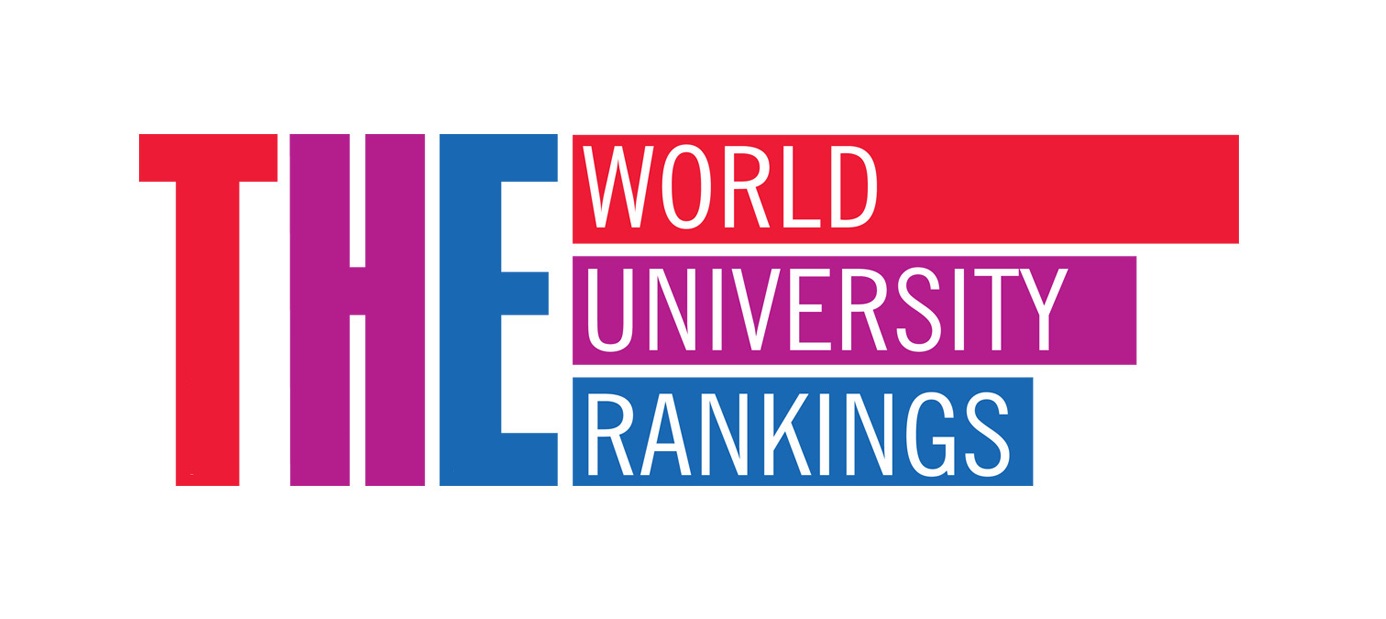
國際大學排名第301-350位
The Times Higher Education World University Rankings 2022

獲得教學框架金獎
Teaching Excellent Framework (TEF) 2023
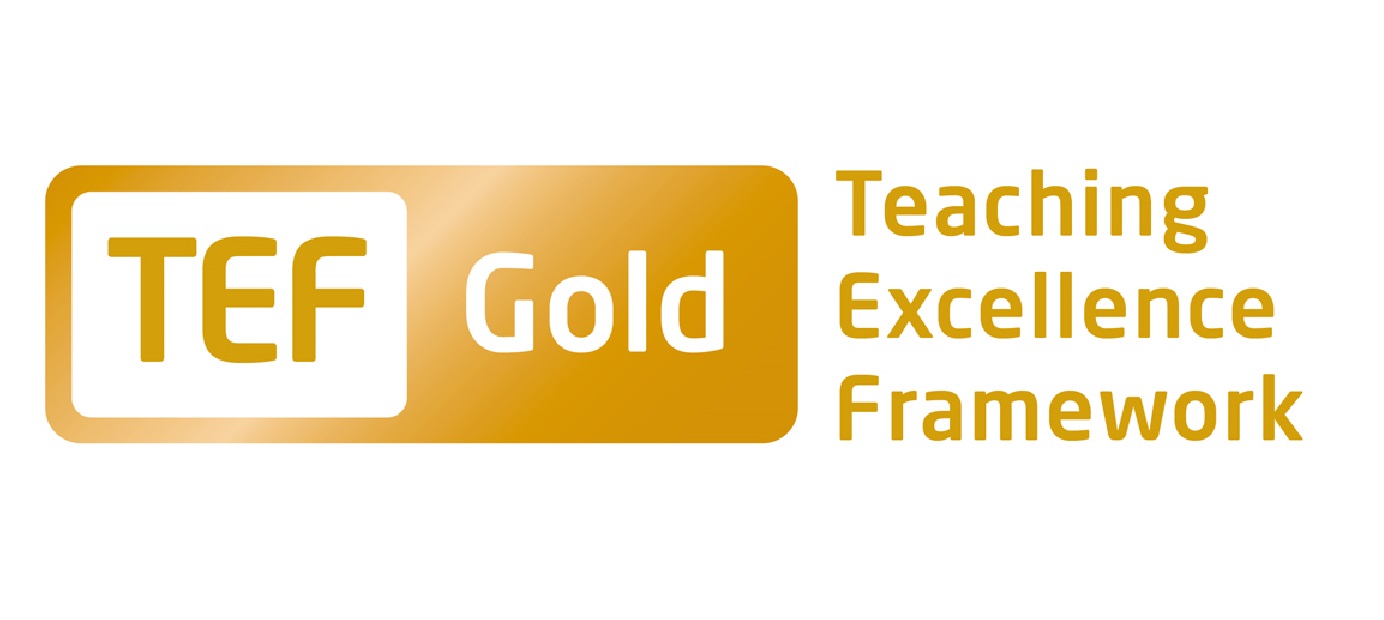


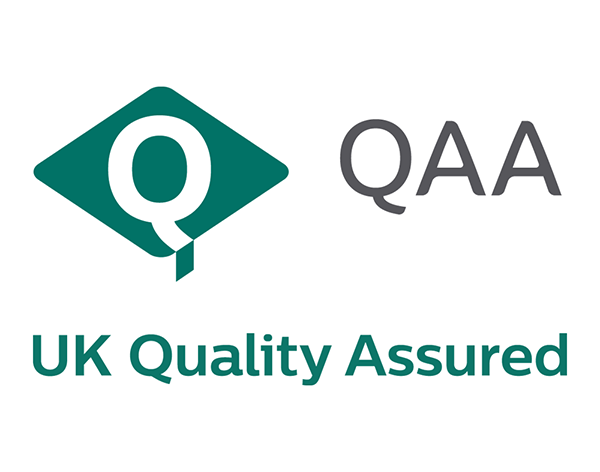
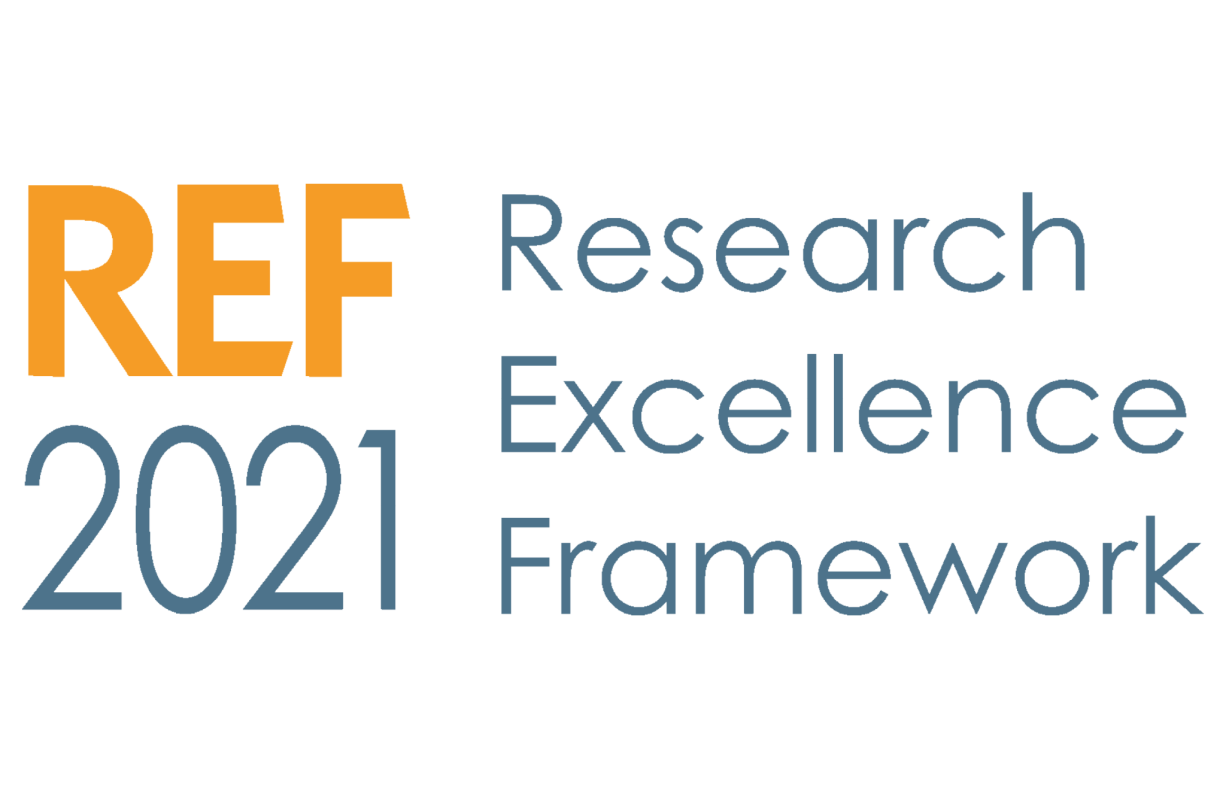
安格里亞魯斯金大學
(Anglia Ruskin University)
課程名稱
MBA in Educational Leadership and Management
學習途徑
Distance Learning
頒授機構
Anglia Ruskin University
課程類型
Level 7 深造文憑 + MBA Top-Up
課程開始時間
Qualifi Level 7 深造文憑:任何時間
MBA Top-Up:九月
課程需時
九個月
升學途徑
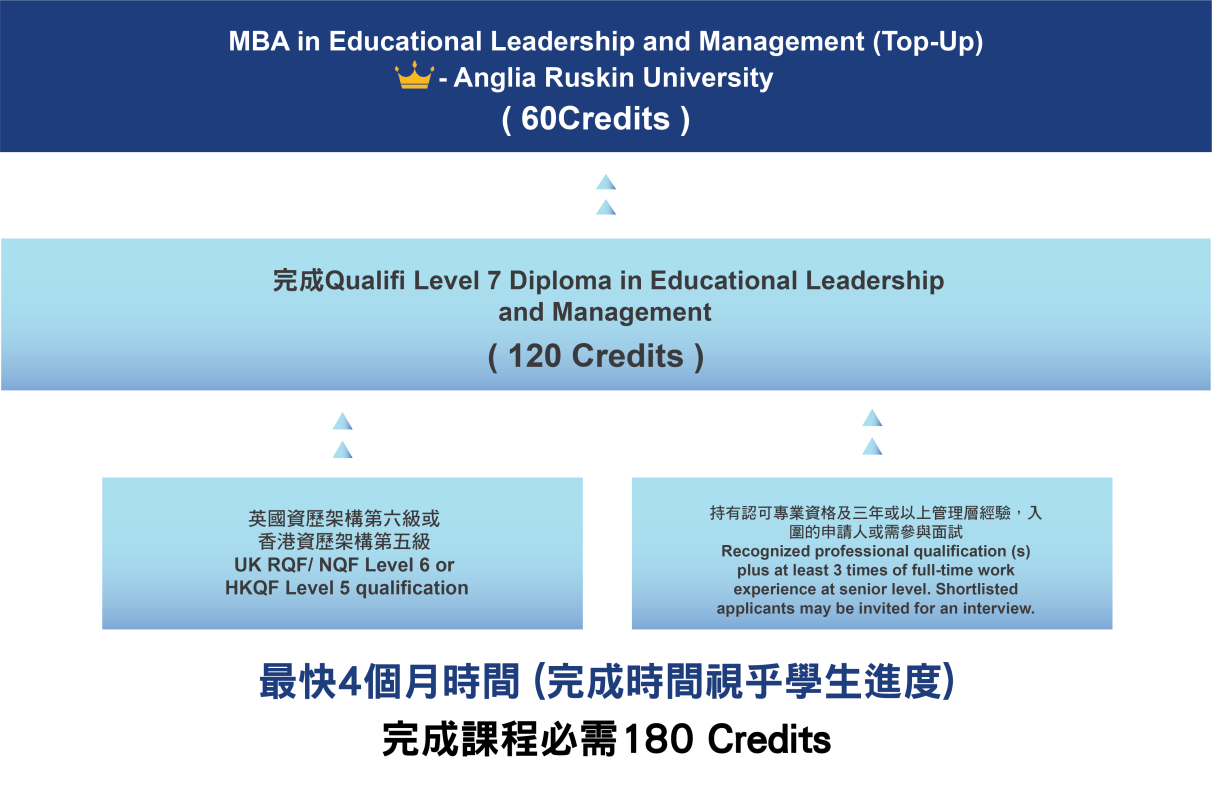
入學條件
- Level 6 Qualification or First Degree or Three years managerial work experience (evaluated on a case-by-case basis)
- A good command of English
Existing educational qualifications and work experience will be directly taken into programme and allowing for module exemptions, please email or WhatsApp us for details.
英文能力水平
- IELTS 5.5; Reading and Writing must be at 5.5 or
- HKALE Use of English at Grade E or above, or HKDSE Examination English Language at Level 3 or above or
- Satisfy the examiners in UK EDUCATION qualifying examination, if required
教育認證
- Level 7 Diploma in Educational Leadership and Management Provided by Qualifi
-
MBA in Educational Leadership and Management by Anglia Ruskin University
Qualifi 頒授 Level 7 Diploma in Educational Leadership and Management
Mandatory Units
You must take all six of the following:
|
Mandatory Units |
|||||
|
Unit Reference |
Mandatory Units |
Level |
TQT |
Credit |
GLH |
|
T/618/3135 |
Leadership Qualities and Practice in Education |
7 |
200 |
20 |
100 |
|
A/618/3136 |
Contemporary Issues in Education: Theory, Policy and Practice |
7 |
200 |
20 |
100 |
|
F/618/3137 |
Managing Change in an Educational Context |
7 |
200 |
20 |
100 |
|
J/618/3138 |
Pedagogy and Practice in Education |
7 |
200 |
20 |
100 |
|
L/618/3139 |
Leading Reflective Practice in Education |
7 |
200 |
20 |
100 |
|
F/618/3140 |
Research Methods in Education |
7 |
200 |
20 |
100 |
The overall structure of the course is based on eight units that cover a number of topics relating to learning outcomes. All units are mandatory.
Learners will be invited to attend lectures and workshops that will introduce the subject matter. Learners must complete all units successfully and achieve 120 credits before the Diploma can be issued.
安格里亞魯斯金大學 (Anglia Ruskin University) 頒授工商管理碩士學位
QUALIFI has exemptions for learners to progress to a number of universities to complete a master’s degree. This generally requires completion of a dissertation only.
The pathways are an indication of a learner’s progress towards a university degree and are based on the university’s review of QUALIFI’s learning programmes and outcomes. Further information is available here.
Developing Effective Management Systems
This module will enable students to engage in a process of critical evaluation and analysis to focus upon systems for managing information, relationships including staff and stakeholders, communication and reporting. Ensuring knowledge is managed effectively in order to provide comprehensive information that will facilitate efficient leadership and management in relation to staff, stakeholders, finance, facilities and measures for dealing with wider policy issues. This module encourages students to focus on internal and external systems in order to engage in a meaning review of their own organisation whilst drilling down to evaluate procedural systems and the effectiveness of information management. The module will concentrate on programme rather than project management and students will not only review and evaluate their own systems and processes, but also engage in wider research by comparing and contrasting management systems across other organisations; either from education, associated disciplines such as health or social care or from industry.
Dissertation (Major Project)
The Major Project is central to the Masters award and enables you to demonstrate your ability to synthesise learning from previous modules. You will use this learning as the basis for planning, conducting and writing up a research or work-based project. This is the opportunity for you to demonstrate the ability to raise significant and meaningful questions in relation to your chosen topic and a critical understanding of research methods and their relationship to knowledge. You will also be in a position to develop solutions to ethical dilemmas likely to arise in your research or professional practice and to expand existing knowledge to contribute to the development of best practice.
引言:
教育領導與管理碩士課程(ARU MBA in Educational Leadership and Management)是Anglia Ruskin University碩士生申請的熱門專業,本文重點介紹ARU MBA in Education management的課程設置、專業介紹、申請要求等詳情。
ARU MBA in Education的培養目標
Anglia Ruskin University MBA in Educational Leadership and Management課程將帶領學生成為教育界的領導者角色。Anglia Ruskin University MBA in Education management課程還將增強學生的思維能力和領導能力,為下一步的職業發展奠定堅實的基礎。報讀Anglia Ruskin University MBA in Education課程的學生有:課堂領導創新者、教育界中層領導、管理人員、地方當局顧問,以及國際教育工作者。每年都有一些ARU MBA in Educational Leadership and Management課程的畢業生繼續攻讀博士學位。如果您希望培養自己作為教育領導者的能力,ARU MBA in Education management碩士項目是您的不二之選。通過ARU MBA in Education項目,學生可以發展學術職業路線或實踐路線。在Anglia Ruskin University MBA in Educational Leadership and Management課程結束時,學生將會為自己下一個職業發展方向奠定基礎,並且具備教育領導挑戰的必要知識和能力。
ARU MBA in Education management適合人群
- 背景提升:ARU MBA in Education課程適合想要提高教育類知識水平和學術能力的學生,以及考慮轉專業或跨專業的申請者。
- 申請規劃:如果不能確定自己目前的情況,想具體了解自己是否具備申請Anglia Ruskin University MBA in Education專業的優勢,以及如何可以提升個人申請競爭力,可以隨時咨詢UK University的升學顧問,進行更深入的專業分析。
ARU MBA in Educational Leadership and Management課程優勢
Anglia Ruskin University排在世界前列。UK University提供線上Anglia Ruskin University MBA in Educational Leadership and Management課程。課程100%以遠程授課的模式進行,-年內即可完成Anglia Ruskin University MBA in Education management課程,100%功課評核,不設考試。畢業後,學生可以親臨英國參加畢業典禮,由認可機構頒發學士學位證書,所獲得的學歷等同於英國當地學生。
適合人士:
- 是高級文憑或L4&L5同等學歷畢業
- 擁有2年工作經驗
- 或中學畢業生(HKDSE/ Diploma / A Level )同等學歷
- 具有至少3年工作經驗(更好是管理者角色)的學生,本中心可以為他們提供課程豁免,意味著他們可以用最短的時間和最快的方式完成課程。
Anglia Ruskin University MBA in Education課程均獲:
- 英國資歷架構認證(RQF Lv6)
- 歐盟國家資歷架構認證(EQF LV 6)
無論你身處何地,都可以隨時隨地參與Anglia Ruskin University MBA in Education學習,與教授和同學充分交流。你還將獲得大量線上教學資源。導師將會為您的作業提供指導。如果想提升自己的職業競爭力,請立刻聯系我們了解更多Anglia Ruskin University MBA in Education詳情。



